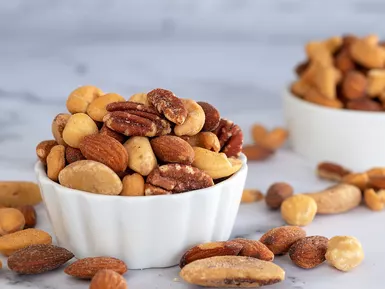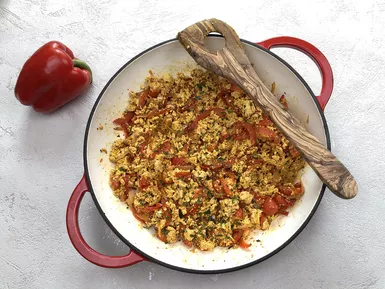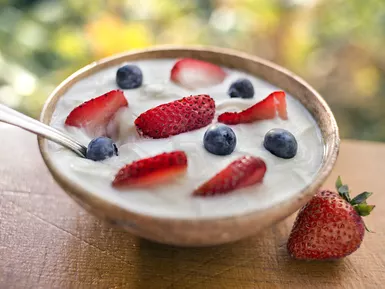
Low Sulfur Foods: A Practical Guide for Sulfide-Sensitive Diets
Sulfur is an essential mineral for human health—critical for collagen production, detoxification, and antioxidant function. Yet, for a growing number of people with sulfide sensitivity, IBS, or impaired sulfur metabolism, high-sulfur foods can trigger bloating, gas, or headaches. If you're navigating this challenge, a targeted low-sulfur diet may offer relief. Here’s your evidence-based guide to safe, nutrient-rich low-sulfur foods.
When Might a Low-Sulfur Diet Help?
Before diving into food lists, it’s key to clarify: Most people need sulfur—deficiency can impair joint health and liver function. A low-sulfur diet is typically recommended short-term for those with:
- Sulfide sensitivity: Intolerance to hydrogen sulfide, a byproduct of gut bacteria metabolizing sulfur.
- IBS or SIBO: Symptoms worsen with sulfur-containing compounds like sulfate or sulfites.
- Genetic factors: Rare mutations (e.g., CBS enzyme variants) that hinder sulfur metabolism.
Always consult a registered dietitian before starting—over-restriction risks nutrient gaps.
The Low-Sulfur Food List: Safe Choices by Category
1. Vegetables (Low in Sulfur-Containing Compounds)
Many sulfur-sensitive individuals react to sulfur-containing amino acids (cysteine/methionine) or glucosinolates (found in cruciferous veggies). Opt for these:
- Leafy greens: Lettuce, spinach (raw, as cooking may reduce sulfur), arugula (in moderation).
- Root veggies: Carrots, sweet potatoes, parsnips (peeled to lower sulfites).
- Non-cruciferous picks: Cucumbers, zucchini, bell peppers, eggplant, squash.
Avoid: Broccoli, cauliflower, Brussels sprouts, cabbage, kale, radishes, turnips.
2. Fruits (Naturally Low in Sulfur)
Most fruits are safe, but watch dried fruits (often sulfite-preserved). Top choices:
- Berries: Strawberries, blueberries, raspberries (fresh only).
- Citrus: Oranges, lemons, limes (peel-free to avoid sulfites).
- Others: Apples, pears, grapes, mangoes, bananas.
Avoid: Dried fruits (apricots, raisins), canned fruits with sulfite additives.
3. Proteins (Low in Sulfur Amino Acids)
Animal proteins are naturally higher in sulfur amino acids, but some are gentler:
- Poultry: Skinless chicken breast, turkey (trim fat to reduce sulfur compounds).
- Fish: Fresh salmon, cod, tilapia (avoid smoked fish—high in sulfites).
- Plant-based: Lentils (soaked/boiled to reduce sulfur), tofu (unsulfured), tempeh (in moderation).
Avoid: Eggs (high in cysteine), red meat (beef, pork), processed meats (sausages, bacon), beans (black beans, chickpeas).
4. Grains & Starches
Refined grains are lower in sulfur than whole grains, but prioritize nutrient density:
- Safe grains: White rice, white quinoa (rinsed), cornmeal, oats (certified gluten-free, as wheat may contain sulfur compounds).
- Avoid: Whole wheat, barley, rye, bulgur.
5. Oils & Condiments
Sulfur lurks in hidden places—check labels for sulfites (E220-E228):
- Safe options: Olive oil, avocado oil, coconut oil, unsweetened nut butters (no additives).
- Avoid: Garlic/onion powder, mustard (high in sulfur compounds), soy sauce (fermented varieties may have sulfites).
Tips for Success: Navigating a Low-Sulfur Diet
- Start slow: Eliminate high-sulfur foods for 2–4 weeks, then reintroduce one at a time to identify triggers.
- Cook strategically: Boiling or soaking legumes/vegetables reduces sulfur compounds by up to 30% (Harvard T.H. Chan School of Public Health).
- Supplement mindfully: Low-sulfur diets may lack B vitamins (from whole grains) or zinc (from red meat)—ask your dietitian about targeted supplements.
- Read labels: Watch for "sulfur dioxide," "potassium bisulfite," or "sodium metabisulfite" in processed foods.
Key Takeaway
A low-sulfur diet isn’t for everyone, but for those with sensitivity, it can dramatically improve quality of life. Focus on fresh, unprocessed foods, and work with a professional to balance symptom relief with nutritional needs. Ready to start? Try swapping onion in your next stir-fry for bell peppers—or sub broccoli with zucchini in tonight’s salad. Your gut will thank you!

5 Transformative Weight-Loss Resolutions for Success

Workout Routines & Beyond: Science-Based Weight Loss

Vitamin E and Weight Loss: Unveiling the Truth

Effective Strategies to Lose Midriff Fat for Women

8 Non-Scale Victories in Your Weight-Loss Journey

Unveiling the Ornish Diet: A Path to Sustainable Weight Loss

The Power of Social Support in Weight Loss

Personalized Weight Loss: 4 Strategies for Success

Long - Term Weight Loss: Maintaining Healthy Habits

